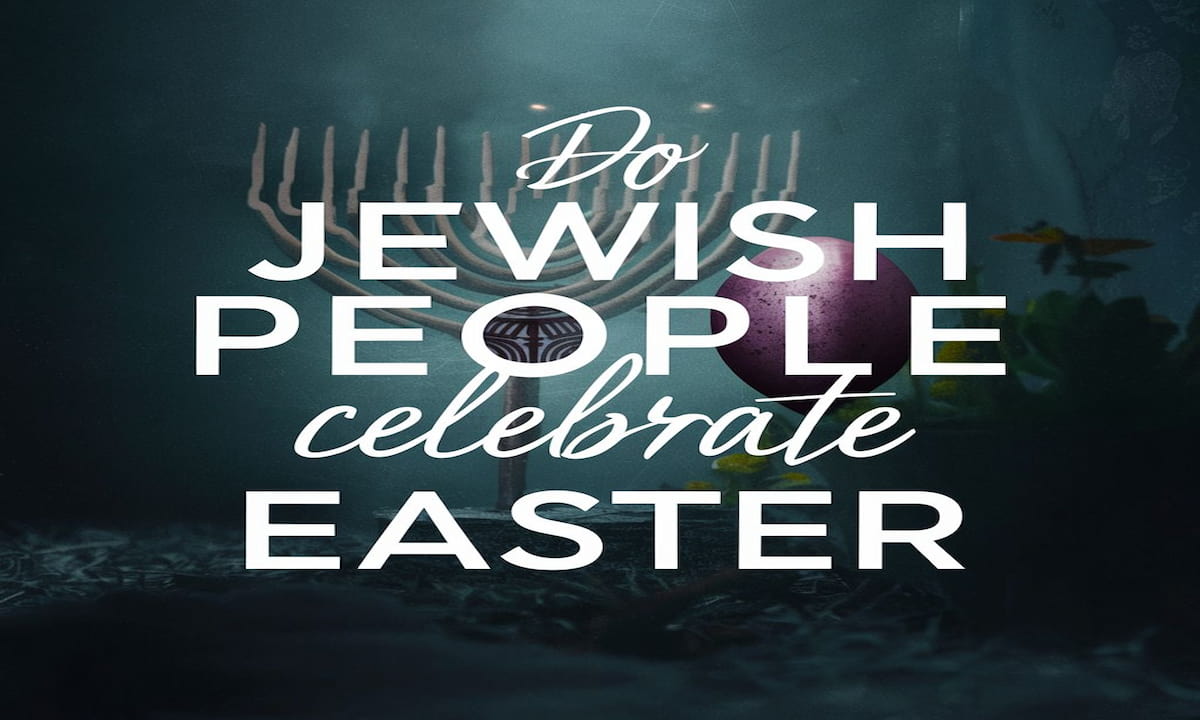The arrival of spring brings forth a sense of renewal and rebirth, a time for celebration and reflection across various cultures and faiths. For the Christian world, this season is marked by the observance of Easter, a sacred holiday commemorating the resurrection of Jesus Christ. However, for the Jewish community, whose religious traditions predate Christianity, the celebration of Easter holds a different significance, if any at all.
Judaism, a religion rooted in ancient practices and the teachings of the Torah, follows a distinct calendar and observes its own set of holidays and festivals. While the timing of Easter often coincides with the Jewish festival of Passover, these two events are separate and distinct, reflecting the divergent histories and beliefs of these two Abrahamic faiths.
The concept of Easter, with its symbolism of the crucifixion and resurrection of Jesus, is inherently Christian and not embraced within the Jewish faith. Jewish teachings do not recognize Jesus as the Messiah or ascribe to the belief of his divine nature. As such, the rituals and observances associated with Easter, such as attending church services, decorating eggs, or exchanging Easter baskets, are not typically practiced within the Jewish community.
Is The Festival of Easter Celebrated in Israel?
Yes, Easter is celebrated in Israel in an exhilarating way but its observance and significance can vary among different Christian denominations. For the majority of Christians in Israel, particularly those belonging to the Eastern Orthodox, Catholic, and Protestant traditions, Easter is an important religious festival commemorating the resurrection of Jesus Christ. The date of Easter varies each year and is determined by the lunar calendar.
In addition to religious observances, Easter in Israel may also involve various cultural and secular activities. It’s worth noting that Israel is a diverse country with people of different religious and cultural backgrounds, so the way Easter is celebrated can differ among communities.
Which Festival Does Jews Celebrate if Not Easter?
Springtime for Jewish people brings a celebration unlike any other – Passover, or Pesach as some call it. It’s a time to gather around the table, not just for a meal, but for a story. A story that’s been passed down for generations, a tale of liberation and hope. It whispers of the Israelites, how they threw off the shackles of slavery in Egypt and walked towards freedom.
Imagine the chaos of that escape! No time for leisurely breakfasts, no chance for fluffy bread to rise. So they fled with what they had – simple, flatbreads we call Matzah. That’s why during Passover, Matzah takes center stage on our tables. It’s a delicious reminder of resilience, a tangible link to our ancestors’ strength.
But Passover is more than just food. It’s a Seder, a special dinner where families come together. We share stories, sing songs, and ask questions. It’s a night of remembering, of celebrating freedom not just for the Israelites, but for all who yearn for liberation. It’s a time to reflect on our own struggles and the hope that a brighter future is always possible.
And while Passover often coincides with Easter, it’s a separate tradition, a unique thread woven into the rich tapestry of Jewish history. It’s a celebration that transcends time, reminding us all that even in the face of hardship, there’s always a reason to raise a glass, break bread (or Matzah!), and sing a song of freedom.

